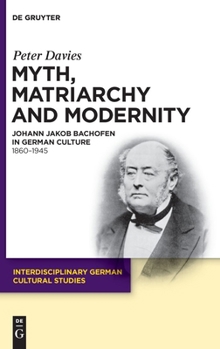Myth, Matriarchy and Modernity: Johann Jakob Bachofen in German Culture. 1860-1945
This study explores the prevalence in German culture of myths about ancient matriarchal societies, discussing their presence in left and right wing politics, feminist and antifeminist writing, sociology, psychoanalysis and literary production. By tracing the influence of the works of the Swiss jurist and theorist of matriarchy, Johann Jakob Bachofen (1815-1887), and the controversies about the reception and interpretation of his work, this study shows how debate about the matriarchal origins of culture was inextricably linked with anxieties about modernity and gender identities at the turn of the twentieth century. By moving beyond the discussion of canonical authors and taking seriously the scope of the discussion, it becomes clear that it is not possible to reduce matriarchal theories to any particular political ideology; instead, they function as a mythic counterdiscourse to a modernity conceived as oppressive, rational and masculine. Writers considered include Ludwig Klages, Hofmannsthal, Kafka, Hauptmann, Lou Andreas-Salom , Sir Galahad, Clara Viebig, Mathilde Vaerting, Thomas Mann, Elisabeth Langg sser, Ilse Langner, Otto Gross, Franz Werfel, and many others.





